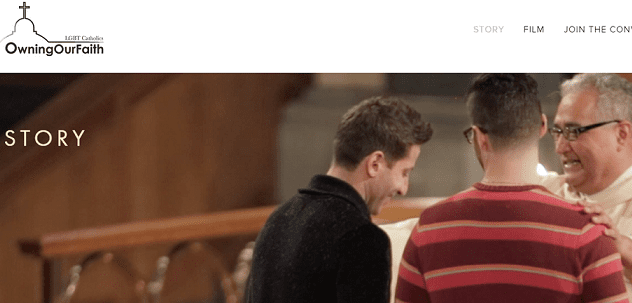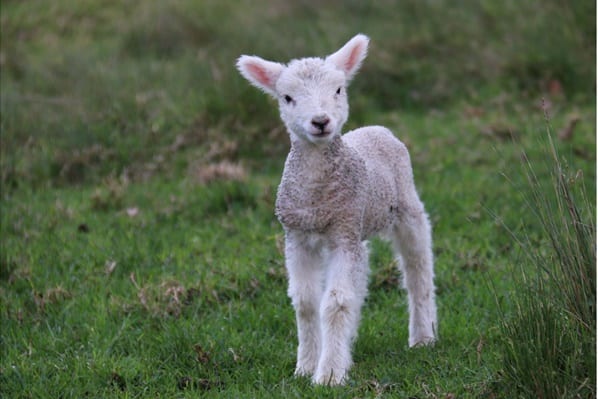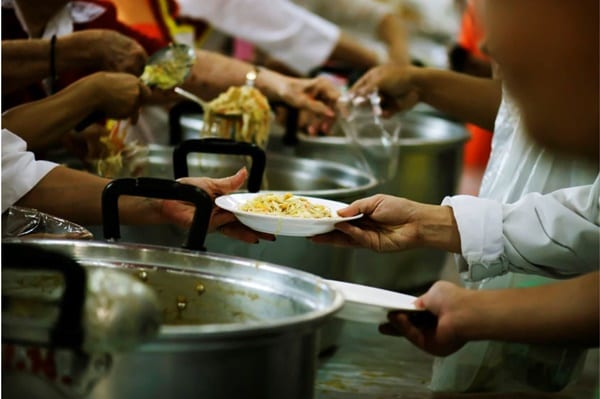
I recently wrote about a former member of my church youth group. She was everything that a youth pastor could ask for in a student. She was kind, welcoming, smart, funny, and she took following Jesus seriously. And I’ll never forget the day that she told our youth group that she is a lesbian. Fortunately, she continues to be a faithful follower of Christ.
I’m a proud member of the United Church of Christ. We’ve had a long history that dates back to 1972 of being open and affirming of our sisters and brothers who identify as LGBTQ. As far as churches go, it was safe and relatively easy for this young woman to identify herself to our church as a lesbian.
But what about LGBTQ Catholics? What’s the experience like for many of them?
I was pleasantly surprised when Pope Francis stated, “A gay person who is seeking God, who is of good will – well, who am I to judge him?” Well, for one thing, YOU’RE THE POPE! You could judge whomever you want. But you don’t judge. That’s because Pope Francis know it’s not his place to judge. It’s not the Catholic Church’s place to judge. It’s not even God’s place to judge. After all, Jesus, the one in whom the fullness of God rested, didn’t come to judge or condemn the world of sin. Rather, on the cross Jesus reveals how God deals with sin: by forgiving it.
Obviously, there’s much more to Catholicism than Pope Francis. I recently came across Owning our Faith. It tells the inspiring story of LGBTQ Catholics who are owning their faith and their sexuality.
At 8:20, a father talks about his gay Catholic son. He says, “My biggest concern with Matthew being gay is religion.”
That statement, just as much as Pope Francis’ statement, actually gives me hope. Why? Because Christianity, including Catholicism, isn’t really religious. In fact, Christianity is the anti-religion.
What is Religion?
As René Girard has taught us, religion in its archaic form was indeed something to be concerned about. Religion was formed from conflict. As proto-human groups began to emerge, they experienced inner rivalry that threatened to destroy the group. We now know that most of these first human communities experience self-destruction in a war of all against all. But in other groups, the war of all against all turned into a war of all against one. Girard calls this the Scapegoat Mechanism. The group united against a victim, whom Girard calls the scapegoat. From the Scapegoat Mechanism emerged religion, including myth, prohibitions, laws, and ritual. When conflicts re-emerged, the elements of archaic religion marked a future scapegoat. The community’s hostility was channeled toward the scapegoat who was sacrificed and temporary peace and safety were restored.
Catholic theologian James Alison describes the scapegoat mechanism in his book Broken Hearts and New Creations as,
…our tendency to create group unity, togetherness and survival by resolving conflict through an all-against one which brings temporary peace and unity to the group at the expense of someone, or some group, held to be evil.
Religion, in the archaic sense, created a system of laws and prohibitions that marked some people as “in” and others as “out.” Christianity challenged that impulse within archaic religions. Christianity is not religious at all. Christianity is the anti-religion.
Christianity: The Anti-Religion
Whereas the archaic religious tendency is to stand in judgment against a scapegoat, Jesus, God-with-us, actually became a scapegoat. Jesus was the ultimate revelation that God has nothing to do with laws and prohibitions that lead to scapegoating. They are purely human constructs. Rather, God has everything to do with creating a new human community. This community would not be based on religious laws and prohibitions that excluded some people as “other.” Instead, this community would be based on God’s love that embraces the “other.”
This anti-religious element within Christianity has profound implications for Catholicism. As James Alison states,
Please notice what this means: in any seriously ‘religious’ culture, the Catholic faith will, quite properly, be regarded as ‘not religious enough.’ Inevitably, as the Catholic faith permeates, various things will start to become unimportant: there will no longer be any good reason for sacred rules…
So, as a Protestant, I give thanks that the religious tendency to scapegoat is unraveling within all forms of Christianity. The Owning Our Faith video reveals just that. The more Christians hold onto the ancient religious tendency to live by sacred rules that lead to scapegoating, including the tendency to scapegoat our LGBTQ sisters and brothers, the more we hear Jesus calling us to live an alternative way of being. That alternative is the Church. Whether Catholic or Protestant or Eastern Orthodox or whatever form it may take, the Church is called to form community, not by uniting against a scapegoat, but by uniting in love.
May we all own that faith.
Keep up with Owning Our Faith on Facebook











